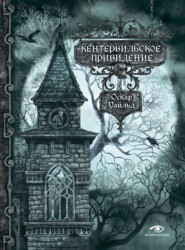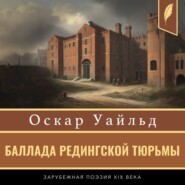По всем вопросам обращайтесь на: info@litportal.ru
(©) 2003-2024.
✖
Reviews
Настройки чтения
Размер шрифта
Высота строк
Поля
And loud the dark Durance:
But bonnier shine the braes of Tyne
Than a’ the fields of France;
And the waves of Till that speak sae still
Gleam goodlier where they glance:
The Tyneside Widow and A Reiver’s Neck-verse are all poems of fine imaginative power, and some of them are terrible in their fierce intensity of passion. There is no danger of English poetry narrowing itself to a form so limited as the romantic ballad in dialect. It is of too vital a growth for that. So we may welcome Mr. Swinburne’s masterly experiments with the hope that things which are inimitable will not be imitated. The collection is completed by a few poems on children, some sonnets, a threnody on John William Inchbold, and a lovely lyric entitled The Interpreters.
In human thought have all things habitation;
Our days
Laugh, lower, and lighten past, and find no station
That stays.
But thought and faith are mightier things than time
Can wrong,
Made splendid once by speech, or made sublime
By song.
Remembrance, though the tide of change that rolls
Wax hoary,
Gives earth and heaven, for song’s sake and the soul’s,
Their glory.
Certainly, ‘for song’s sake’ we should love Mr. Swinburne’s work, cannot, indeed, help loving it, so marvellous a music-maker is he. But what of the soul? For the soul we must go elsewhere.
Poems and Ballads. Third Series. By Algernon Charles Swinburne. (Chatto and Windus.)
THREE NEW POETS
(Pall Mall Gazette, July 12, 1889.)
Books of poetry by young writers are usually promissory notes that are never met. Now and then, however, one comes across a volume that is so far above the average that one can hardly resist the fascinating temptation of recklessly prophesying a fine future for its author. Such a book Mr. Yeats’s Wanderings of Oisin certainly is. Here we find nobility of treatment and nobility of subject-matter, delicacy of poetic instinct and richness of imaginative resource. Unequal and uneven much of the work must be admitted to be. Mr. Yeats does not try to ‘out-baby’ Wordsworth, we are glad to say; but he occasionally succeeds in ‘out-glittering’ Keats, and, here and there, in his book we come across strange crudities and irritating conceits. But when he is at his best he is very good. If he has not the grand simplicity of epic treatment, he has at least something of the largeness of vision that belongs to the epical temper. He does not rob of their stature the great heroes of Celtic mythology. He is very naïve and very primitive and speaks of his giants with the air of a child. Here is a characteristic passage from the account of Oisin’s return from the Island of Forgetfulness:
And I rode by the plains of the sea’s edge, where all is barren and grey,
Grey sands on the green of the grasses and over the dripping trees,
Dripping and doubling landward, as though they would hasten away
Like an army of old men longing for rest from the moan of the seas.
Long fled the foam-flakes around me, the winds fled out of the vast,
Snatching the bird in secret, nor knew I, embosomed apart,
When they froze the cloth on my body like armour riveted fast,
For Remembrance, lifting her leanness, keened in the gates of my heart.
Till fattening the winds of the morning, an odour of new-mown hay
Came, and my forehead fell low, and my tears like berries fell down;
Later a sound came, half lost in the sound of a shore far away,
From the great grass-barnacle calling, and later the shore-winds brown.
If I were as I once was, the gold hooves crushing the sand and the shells,
Coming forth from the sea like the morning with red lips murmuring a song,
Not coughing, my head on my knees, and praying, and wroth with the bells,
I would leave no Saint’s head on his body, though spacious his lands were and strong.
Making way from the kindling surges, I rode on a bridle-path,
Much wondering to see upon all hands, of wattle and woodwork made,
Thy bell-mounted churches, and guardless the sacred cairn and the earth,
And a small and feeble populace stooping with mattock and spade.
In one or two places the music is faulty, the construction is sometimes too involved, and the word ‘populace’ in the last line is rather infelicitous; but, when all is said, it is impossible not to feel in these stanzas the presence of the true poetic spirit.
A young lady who seeks for a ‘song surpassing sense,’ and tries to reproduce Mr. Browning’s mode of verse for our edification, may seem to be in a somewhat parlous state. But Miss Caroline Fitz Gerald’s work is better than her aim. Venetia Victrix is in many respects a fine poem. It shows vigour, intellectual strength, and courage. The story is a strange one. A certain Venetian, hating one of the Ten who had wronged him and identifying his enemy with Venice herself, abandons his native city and makes a vow that, rather than lift a hand for her good, he will give his soul to Hell. As he is sailing down the Adriatic at night, his ship is suddenly becalmed and he sees a huge galley
where sate
Like counsellors on high, exempt, elate,
The fiends triumphant in their fiery state,
on their way to Venice. He has to choose between his own ruin and the ruin of his city. After a struggle, he determines to sacrifice himself to his rash oath.
I climbed aloft. My brain had grown one thought,
One hope, one purpose. And I heard the hiss
Of raging disappointment, loth to miss
Its prey – I heard the lapping of the flame,
That through the blenchèd figures went and came,
Darting in frenzy to the devils’ yell.
I set that cross on high, and cried: ‘To hell
My soul for ever, and my deed to God!
Once Venice guarded safe, let this vile clod
Drift where fate will!’
And then (the hideous laugh
Of fiends in full possession, keen to quaff
The wine of one new soul not weak with tears,
Pealing like ruinous thunder in mine ears)
I fell, and heard no more. The pale day broke
Through lazar-windows, when once more I woke,
Remembering I might no more dare to pray.
Venetia Victrix is followed by Ophelion, a curious lyrical play whose dramatis personæ consist of Night, Death, Dawn and a Scholar. It is intricate rather than musical, but some of the songs are graceful – notably one beginning
Lady of heaven most pure and holy,
Artemis, fleet as the flying deer,
Glide through the dusk like a silver shadow,
Mirror thy brow in the lonely mere.
Miss Fitz Gerald’s volume is certainly worth reading.
Mr. Richard Le Gallienne’s little book, Volumes in Folio as he quaintly calls it, is full of dainty verse and delicate fancy. Lines such as
And lo! the white face of the dawn
Yearned like a ghost’s against the pane,
A sobbing ghost amid the rain;
Or like a chill and pallid rose
Slowly upclimbing from the lawn, strike,
But bonnier shine the braes of Tyne
Than a’ the fields of France;
And the waves of Till that speak sae still
Gleam goodlier where they glance:
The Tyneside Widow and A Reiver’s Neck-verse are all poems of fine imaginative power, and some of them are terrible in their fierce intensity of passion. There is no danger of English poetry narrowing itself to a form so limited as the romantic ballad in dialect. It is of too vital a growth for that. So we may welcome Mr. Swinburne’s masterly experiments with the hope that things which are inimitable will not be imitated. The collection is completed by a few poems on children, some sonnets, a threnody on John William Inchbold, and a lovely lyric entitled The Interpreters.
In human thought have all things habitation;
Our days
Laugh, lower, and lighten past, and find no station
That stays.
But thought and faith are mightier things than time
Can wrong,
Made splendid once by speech, or made sublime
By song.
Remembrance, though the tide of change that rolls
Wax hoary,
Gives earth and heaven, for song’s sake and the soul’s,
Their glory.
Certainly, ‘for song’s sake’ we should love Mr. Swinburne’s work, cannot, indeed, help loving it, so marvellous a music-maker is he. But what of the soul? For the soul we must go elsewhere.
Poems and Ballads. Third Series. By Algernon Charles Swinburne. (Chatto and Windus.)
THREE NEW POETS
(Pall Mall Gazette, July 12, 1889.)
Books of poetry by young writers are usually promissory notes that are never met. Now and then, however, one comes across a volume that is so far above the average that one can hardly resist the fascinating temptation of recklessly prophesying a fine future for its author. Such a book Mr. Yeats’s Wanderings of Oisin certainly is. Here we find nobility of treatment and nobility of subject-matter, delicacy of poetic instinct and richness of imaginative resource. Unequal and uneven much of the work must be admitted to be. Mr. Yeats does not try to ‘out-baby’ Wordsworth, we are glad to say; but he occasionally succeeds in ‘out-glittering’ Keats, and, here and there, in his book we come across strange crudities and irritating conceits. But when he is at his best he is very good. If he has not the grand simplicity of epic treatment, he has at least something of the largeness of vision that belongs to the epical temper. He does not rob of their stature the great heroes of Celtic mythology. He is very naïve and very primitive and speaks of his giants with the air of a child. Here is a characteristic passage from the account of Oisin’s return from the Island of Forgetfulness:
And I rode by the plains of the sea’s edge, where all is barren and grey,
Grey sands on the green of the grasses and over the dripping trees,
Dripping and doubling landward, as though they would hasten away
Like an army of old men longing for rest from the moan of the seas.
Long fled the foam-flakes around me, the winds fled out of the vast,
Snatching the bird in secret, nor knew I, embosomed apart,
When they froze the cloth on my body like armour riveted fast,
For Remembrance, lifting her leanness, keened in the gates of my heart.
Till fattening the winds of the morning, an odour of new-mown hay
Came, and my forehead fell low, and my tears like berries fell down;
Later a sound came, half lost in the sound of a shore far away,
From the great grass-barnacle calling, and later the shore-winds brown.
If I were as I once was, the gold hooves crushing the sand and the shells,
Coming forth from the sea like the morning with red lips murmuring a song,
Not coughing, my head on my knees, and praying, and wroth with the bells,
I would leave no Saint’s head on his body, though spacious his lands were and strong.
Making way from the kindling surges, I rode on a bridle-path,
Much wondering to see upon all hands, of wattle and woodwork made,
Thy bell-mounted churches, and guardless the sacred cairn and the earth,
And a small and feeble populace stooping with mattock and spade.
In one or two places the music is faulty, the construction is sometimes too involved, and the word ‘populace’ in the last line is rather infelicitous; but, when all is said, it is impossible not to feel in these stanzas the presence of the true poetic spirit.
A young lady who seeks for a ‘song surpassing sense,’ and tries to reproduce Mr. Browning’s mode of verse for our edification, may seem to be in a somewhat parlous state. But Miss Caroline Fitz Gerald’s work is better than her aim. Venetia Victrix is in many respects a fine poem. It shows vigour, intellectual strength, and courage. The story is a strange one. A certain Venetian, hating one of the Ten who had wronged him and identifying his enemy with Venice herself, abandons his native city and makes a vow that, rather than lift a hand for her good, he will give his soul to Hell. As he is sailing down the Adriatic at night, his ship is suddenly becalmed and he sees a huge galley
where sate
Like counsellors on high, exempt, elate,
The fiends triumphant in their fiery state,
on their way to Venice. He has to choose between his own ruin and the ruin of his city. After a struggle, he determines to sacrifice himself to his rash oath.
I climbed aloft. My brain had grown one thought,
One hope, one purpose. And I heard the hiss
Of raging disappointment, loth to miss
Its prey – I heard the lapping of the flame,
That through the blenchèd figures went and came,
Darting in frenzy to the devils’ yell.
I set that cross on high, and cried: ‘To hell
My soul for ever, and my deed to God!
Once Venice guarded safe, let this vile clod
Drift where fate will!’
And then (the hideous laugh
Of fiends in full possession, keen to quaff
The wine of one new soul not weak with tears,
Pealing like ruinous thunder in mine ears)
I fell, and heard no more. The pale day broke
Through lazar-windows, when once more I woke,
Remembering I might no more dare to pray.
Venetia Victrix is followed by Ophelion, a curious lyrical play whose dramatis personæ consist of Night, Death, Dawn and a Scholar. It is intricate rather than musical, but some of the songs are graceful – notably one beginning
Lady of heaven most pure and holy,
Artemis, fleet as the flying deer,
Glide through the dusk like a silver shadow,
Mirror thy brow in the lonely mere.
Miss Fitz Gerald’s volume is certainly worth reading.
Mr. Richard Le Gallienne’s little book, Volumes in Folio as he quaintly calls it, is full of dainty verse and delicate fancy. Lines such as
And lo! the white face of the dawn
Yearned like a ghost’s against the pane,
A sobbing ghost amid the rain;
Or like a chill and pallid rose
Slowly upclimbing from the lawn, strike,

















